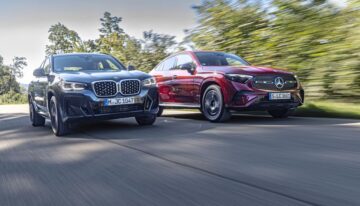For many people, having a car is a must. You might need one for work, especially if you joined the crowd moving out of cities during the pandemic. Perhaps you can’t rely on public transport due to lack of access or increasingly poor service. Or maybe you need a car for family reasons. Whatever your motivations, you’ll face a common dilemma; do you buy new or second-hand?
There are several advantages and disadvantages to both, so it’s important to carefully weigh up your options before getting behind the wheel. We’ve summarised the key pros and cons of used cars below to help you decide which route to take.
Pros of second-hand cars
Let’s start with the obvious one. Despite used car prices accelerating in the past few years, they’re still cheaper than new models.
Sure, you might still need to compare different payment options, such as using cash savings, applying for a personal car loan, or signing up to a dealership finance deal. But there’s bargains to be had if you’re not bothered about having the latest registration and they don’t take as much to pay off.
You won’t have to worry about depreciation as much either. New cars lose significant amounts of their value in the first few years, but buying used allows you to steer clear of the worst of it. That means you could even resell your vehicle for a similar price depending on its age and condition.
On a related note, many used car dealerships offer warranties and service plans for peace of mind. You’ll typically find a good amount of choice available too, so you’re not just limited to the models and specs that no-one wants.
Cons of second-hand cars
Like all good things in life, there are potential downsides to consider about buying used.
The clearest negative is likely the potential for reduced reliability. It’s logical that used cars are more likely to suffer problems due to the age and wear and tear they’ve accrued under a previous owner. This risk is reduced if your car has a reputation for reliability coupled with an up-to-date service history – but not all used models do.
Second, you’ll naturally find your choice more limited when buying second-hand. If you’re looking for specific features, colours and accessories, you’ll probably need to be more flexible and spend extra time shopping around.
Third, you might find that finance deals are pricier for used models compared to new ones. This doesn’t mean you’ll pay more overall but you could pay extra in interest, which might not be something you’re happy with.
Making your decision
Ultimately, used cars can offer better value for money at the expense of some flexibility and long-term reliability. The best option for you will depend on your priorities. Could a second-hand vehicle tick the right boxes?













